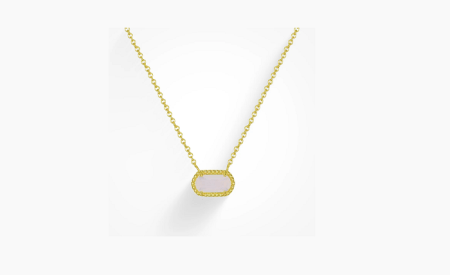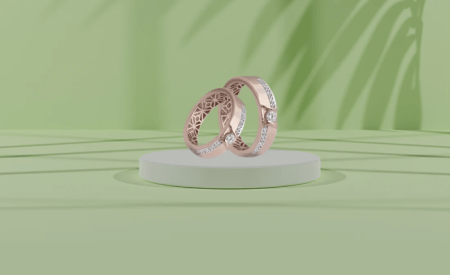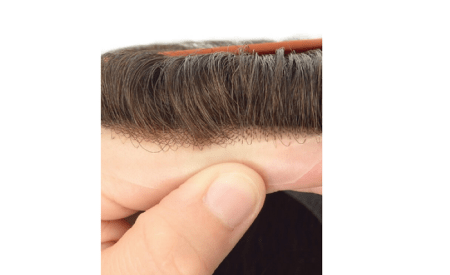Selling your jewelry can be a daunting task, especially when you want to ensure you’re getting the best value for your precious items. Whether you’re parting with gold, diamonds, or antique pieces, it’s crucial to find a trustworthy buyer who offers a fair price. Unfortunately, not all buyers have your best interests in mind, and getting the top dollar for your jewelry requires a bit of research, comparison, and savvy negotiation.
In this guide, we’ll share actionable tips on how to identify reputable jewelry buyers and maximize the value of your pieces.
1. Evaluate Transparency and Communication
Trustworthy jewelry buyers are upfront about their evaluation process and transparent in their communications. Avoid buyers who are vague about how they arrived at their offer or who rush you into making a sale.
- Clear Explanation of the Valuation Process: A reputable buyer will take the time to explain how they determine the value of your jewelry, whether it’s through testing gold purity, evaluating diamonds, or considering the craftsmanship of the piece. Ask questions and ensure they provide clear, understandable answers.
- No Pressure Tactics: Avoid buyers who push you to accept an offer on the spot. A trustworthy buyer will give you time to consider your options and won’t resort to high-pressure sales tactics. If a buyer seems overly eager to close the deal quickly, it may be a sign that they’re not offering a fair price.
- Written Offers: If you receive an offer, request that it be put in writing. This ensures that the terms of the deal are clear and that there’s a record of the price and details of the sale. Reputable buyers will have no problem providing this.
2. Get Multiple Offers for Comparison
Never settle for the first offer you receive when selling your jewelry. Different buyers may have varying methods of valuation, and one buyer’s offer might not reflect the true market value of your piece. To ensure you’re getting top dollar, always shop around and compare offers.
- Visit Multiple Buyers: Take your jewelry to at least three different buyers to compare their offers. Be sure to note the differences in how they evaluate your pieces and the prices they’re willing to pay. Reputable buyers will often explain the valuation process and what factors influence their offer.
- Compare Offers Online and In-Person: Selling online can sometimes yield better offers due to a larger market, but in-person buyers may offer immediate payouts. Compare both methods and weigh the pros and cons of each option to make the best decision.
- Look for Consistent Pricing: If one buyer offers significantly less than others, it could be a red flag. Consistency in pricing across multiple buyers indicates that you’re likely receiving fair offers based on the market value of your jewelry.
3. Understand How Jewelry Is Valued
Understanding the factors that influence the value of your jewelry will help you determine whether you’re getting a fair offer. Reputable buyers will base their valuations on criteria like gold purity, gemstone quality, and market trends.
- Gold Purity and Weight: If you’re selling gold jewelry, the value will depend heavily on its purity (measured in karats) and weight. Pure gold (24K) will fetch a higher price than gold mixed with other metals, such as 18K or 14K. Reputable buyers will test your gold for purity and provide transparent pricing based on current market rates.
- Gemstone Quality: For pieces with diamonds or other gemstones, factors like carat weight, cut, clarity, and color will determine their value. Buyers with GIA certification are trained to properly evaluate gemstones, ensuring that you receive an accurate assessment.
- Market Conditions: The price of gold and diamonds fluctuates based on global market conditions. Stay informed about these trends to ensure you’re selling at the right time. If gold prices are at a high, for example, it might be the perfect moment to sell.
- Sentimental Value: Keep in mind that buyers won’t account for sentimental value when offering a price. A piece of jewelry that holds emotional significance to you may not fetch a higher price, so it’s important to manage expectations when selling.
4. Do Your Research on Local Buyers and Online Platforms
The first step in finding a trustworthy jewelry buyer is to thoroughly research both local buyers and online platforms. Reputable buyers are often well-established in the community, and they will have a strong track record of offering fair deals. For example, if you are based in Phoenix, Arizona, you should be able to quickly find out who is the best jewelry buyer in Chandler, you just have to do your homework! Here’s how to get started:
- Check Reviews and Testimonials: Online reviews on platforms like Google, Yelp, or Trustpilot are great indicators of a buyer’s reputation. Look for consistent positive feedback, especially from people who sold jewelry similar to yours. Be wary of any buyers with numerous negative reviews or complaints about lowball offers.
- Ask for Recommendations: Word-of-mouth referrals can be one of the best ways to find a reputable buyer. Ask friends, family members, or even coworkers if they’ve had a positive experience with a specific jeweler or buyer.
- Look for Certifications: Many jewelry buyers are certified by professional organizations like the Gemological Institute of America (GIA) or the American Gem Society (AGS). A buyer with these credentials has demonstrated knowledge and ethical practices, making them more reliable.
- Explore Online Marketplaces: If you choose to sell jewelry online, look for established platforms with a strong reputation for security and fair pricing. Websites like eBay or specialized jewelry marketplaces can connect you with a larger pool of potential buyers, often leading to better offers.
5. Consider Selling to Specialized Buyers
Sometimes, the best option for selling your jewelry is to go directly to buyers who specialize in certain types of jewelry. For example:
- Antique and Vintage Jewelry Buyers: If you’re selling a piece of antique or vintage jewelry, seek out buyers who specialize in these items. They often have a deeper understanding of the historical and craftsmanship value, which can lead to higher offers.
- Gold Buyers: For gold jewelry or bullion, specialized gold buyers may offer better rates than general jewelry stores or pawnshops. They typically track gold prices closely and provide offers based on current market rates.
- Online Gold Buyers: If you’re looking for an easy, convenient way to sell your gold, consider working with reputable online gold buyers. These companies offer mail-in services and typically have competitive prices for gold. Many offer insurance and guarantees, adding an extra layer of protection to the transaction.
6. Ask About Fees and Payment Options
Reputable jewelry buyers are transparent about any fees they charge for evaluating or purchasing your jewelry. Be sure to clarify any additional costs before agreeing to a sale.
- No Hidden Fees: Ask if there are any appraisal fees, shipping costs, or other expenses that might be deducted from your final payout. A trustworthy buyer will be upfront about all associated costs.
- Fast and Secure Payment: Make sure the buyer offers a payment method that works for you, whether that’s cash, a certified check, or direct bank transfer. Secure and timely payment is essential when selling valuable items like jewelry.
Conclusion
Finding a trustworthy jewelry buyer who offers top dollar requires a mix of research, comparison, and understanding the value of your pieces. By doing your homework, getting multiple offers, and working with reputable buyers who are transparent and knowledgeable, you can ensure that you receive a fair price for your jewelry.
Remember, whether you’re selling gold, diamonds, or other precious items, patience is key. Take your time to find the right buyer who offers a deal that reflects the true value of your jewelry, and you’ll walk away with the best possible return for your valuables.







